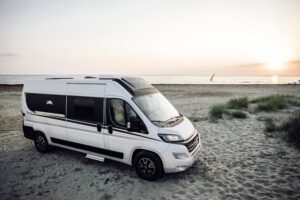

May 4, 2016
Having either a motorhome or caravan brings independence – you’re no longer tied to package holidays, hotels and a set itinerary.
But which is the better option?
Here we take a few of the pros and cons of both – but full disclosure, our area of expertise is motorhomes. We might be a tad biased!
Both caravans and motorhomes are available for a wide range of budgets and of course the cost to purchase depends on whether you are buying new or second hand, the age, make, model, interior fittings and more.
You can buy a relatively cheap caravan for less than you’d be able to buy a motorhome, though saying that is somewhat meaningless. An old caravan might have little life left – whereas motorhomes run for ages without issue. With a caravan you also have to factor in the cost of the car to tow it – you may not need to purchase a separate vehicle, but towing a caravan will have an effect on your family car’s future selling price.
Away from older, budget models the differences in price can be surprisingly small – and with a motorhome the cost across the lifetime of the vehicle, including resale value, often makes them a far better bet economically.

With a caravan, you might enjoy 10 years of great use, then have to spend the same amount again for a new model. With a motorhome, your existing vehicle is a far better asset to use as trade-in or to sell privately to help finance your upgrade. Equally, with a motorhome there really isn’t that same need to upgrade or update every few years – a much loved motorhome can run for decades and decades.
This one is a no brainer – a motorhome is far easier to drive than a caravan. Even driving a caravan while moving forwards can be stressful for the inexperienced tower, with the fear of snaking, or just manoeuvring around tight roads.
Going backwards; reversing a caravan. Well, it’s fun for people watching if nothing else!
With a motorhome driving is a pleasure, the raised cab is suited to the size of vehicle – whereas with a caravan you have a standard car view, yet more than double the normal length.
And with a motorhome, driving aids are built with that vehicle in mind – parking sensors, reversing cameras for example.
We’d like to paint a little picture.
You’re heading to the Lake District, you’ve found a lovely little campsite in a beautiful setting. Everything seems perfect – except the weather of course. This is the UK, this is the Lake District, it’s currently wet and windy. Very wet and windy.
If you’re pulling a caravan, once you’ve manoeuvred around those tight Lake District roads (hopefully avoiding any passes), first you’ve got to park up. You might have mastered this technique and reversing is easy, or this might be stressful.
But once you’re parked you need to uncouple, hook up the electricity, fetch water and attach the waste meter. After all that, wet, annoyed and no longer really in the holiday mood you could put the kettle on and make that all important cup of tea.
Meanwhile, the person arriving in a motorhome; they simply park, make a brew, perhaps switch the radio or TV on and wait for the rain to clear. No need to step outside right now…
Or the motorhome owner might have taken advantage of a stop en route, in a nice café, or at a tourist attraction, or stopping to admire a view. Caravans are fine once you’re all parked up and settled, but getting to that point involves a lot more stress.
Increasingly motorhome owners are using their vehicles for a variety of holidays- from short breaks in the UK, to a week or two on the continent, to an annual skiing trip.
You might never intend going on a ski holiday, or heading up mountain roads. If you’re going to be limiting yourself to summer trips along the motorway, then a caravan is an option worth considering, but if you might be a bit more adventurous then a motorhome is the better fit.
Many caravans and motorhomes use similar components inside the living space – same cooker and fridge makes for example.
Both offer a comfortable, potentially luxurious living environment. It’s easy to check prices, models and specs on line, but you can’t beat stepping inside a few to see which works best for you. Whichever you chose though, you can enjoy a living space on a par with the best hotel rooms.
For some, the fact you can uncouple the car from a caravan, then use the car for day trips is appealing. The initial added difficulty of getting to the site and parking up with a caravan is offset by the versatility of then having your car on site.
With a motorhome, you can head off on day trips, but admittedly it’s not always as convenient as heading off in the family car.
One option is to tow a small car, this is easier than towing a caravan with a car, yet gives you exactly the same flexibility whilst on site.
Did you know the payload for a motorhome is considerably larger than for a caravan?
With a caravan, you can of course load up the car too, though that’s a balancing act so as not to adversely affect your towing.
With a motorhome, you can pack everything bar the kitchen sink (one of those is included already). Often, this means you don’t have to make annoying little compromises, you don’t have to pack plastic crockery and cutlery just to save a few kilos.
